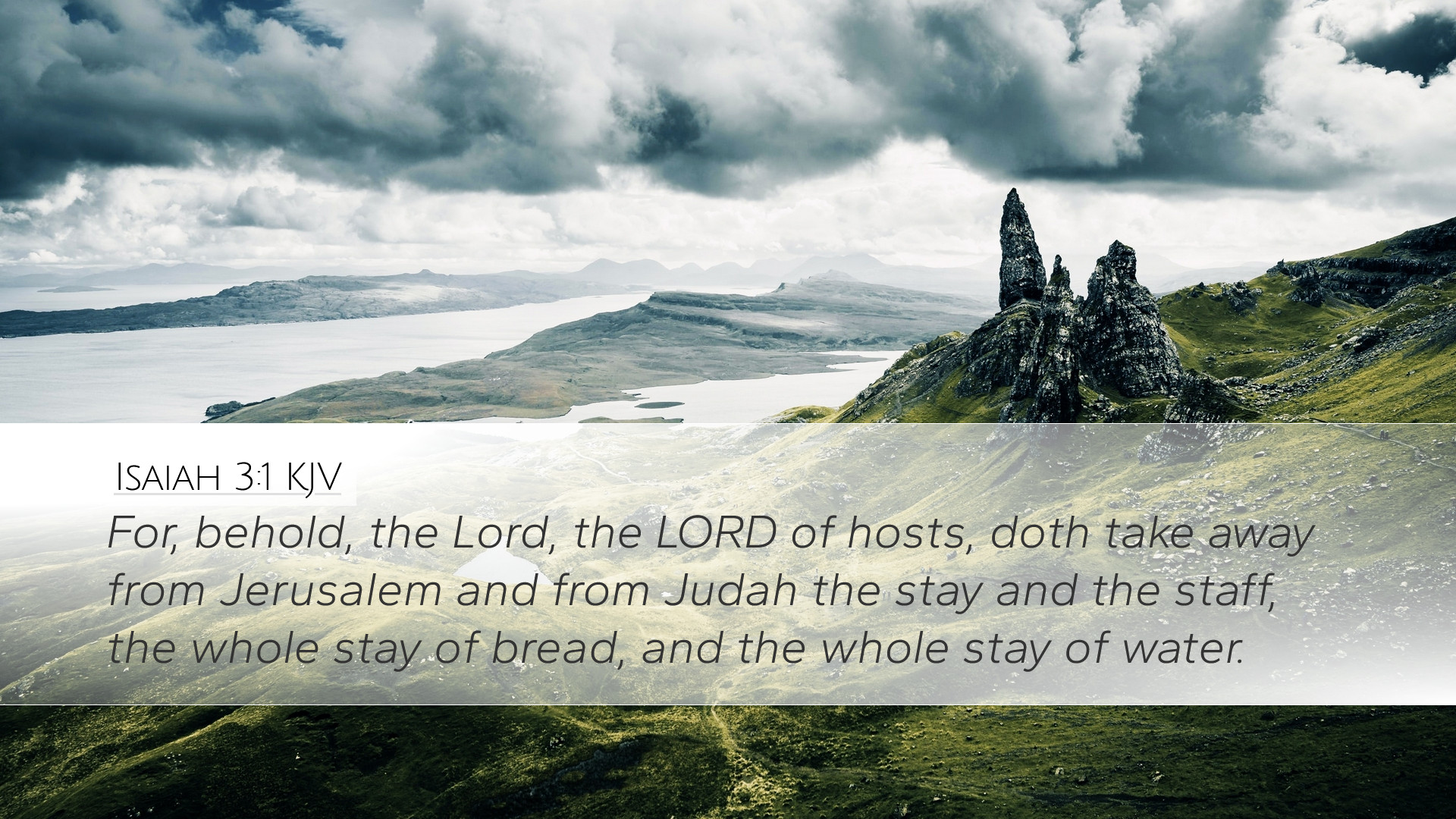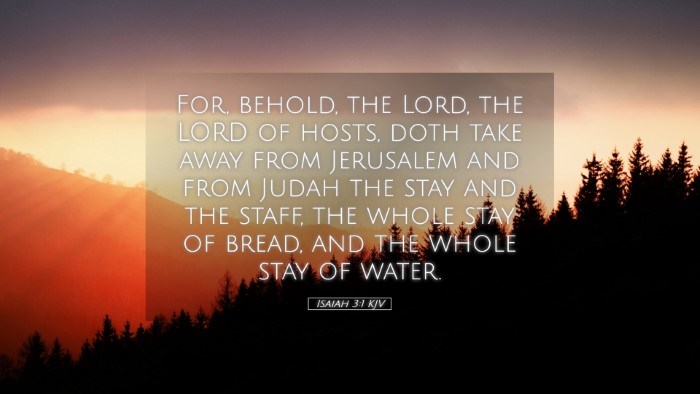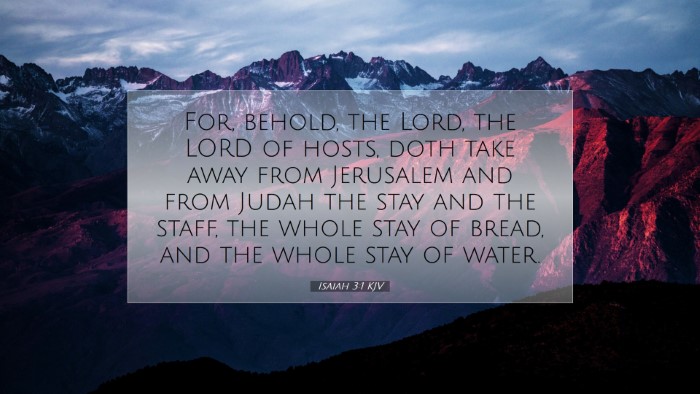Commentary on Isaiah 3:1
Verse: Isaiah 3:1 - "For behold, the Lord God of hosts is taking away from Jerusalem and from Judah support and supply, all support of bread, and all support of water."
Contextual Background
The book of Isaiah is a profound narrative that unveils the judgment and impending doom of Judah and Jerusalem due to their moral decay and social injustice. Isaiah prophesied during a tumultuous time, marked by both national crises and spiritual decline. The verse in question is a stark declaration of divine judgment, focusing on the removal of essential provisions—a metaphor for the people's dire state.
Theological Insights
Divine Sovereignty: The primary insight from Isaiah 3:1 is the assertion of God's sovereignty. The phrase "the Lord God of hosts" indicates His supreme authority over heaven and earth. Both Matthew Henry and Adam Clarke highlight that God actively removes the supports of life, emphasizing that no provision is without His control.
Judgment and Consequences: The commentary recognizes this withdrawal as a direct consequence of Judah's sins. Albert Barnes elaborates that God's judgment manifests through physical deprivation, illustrating the seriousness of the people’s estrangement from Him. This theme is recurrent throughout Isaiah, warning of the real-world implications of spiritual unfaithfulness.
Expository Commentary
Support and Supply: The terms "support" and "supply" refer to both literal sustenance—food and water—and to the spiritual fortitude necessary for life. The absence of "all support of bread, and all support of water" symbolizes complete desolation. Here, Henry emphasizes that such a curse represents more than mere famine; it signifies a complete moral and spiritual collapse as the people turn from God.
This depletion of resources can also be seen as a societal collapse—a withdrawal of God’s favor. Clarke notes that this provision is not only physical; it refers to the loss of wise leaders, robust governance, and moral integrity within the community. Thus, God's judgment extends beyond material needs to encompass the very fabric of societal order.
Practical Applications
- Recognizing Divine Displeasure: Contemporary readers, especially pastors and theologians, may find in this passage a call to assess both personal and communal faithfulness. The consequences of divine displeasure can lead to societal decay, urging a return to moral alignment with God's will.
- Urgency for Repentance: As this passage illustrates the stark reality of judgment, it compels believers to a posture of repentance. The scholars agree that recognizing our need for God's provision—both spiritual and physical—is paramount for restoration.
- Hope amid Judgment: Although this verse presents a grim picture, it serves as a precursor to the themes of hope and redemption found throughout Isaiah. It challenges leaders and congregants alike to not only lament the loss of God’s favor but to fervently seek restoration and revival.
Conclusion
Isaiah 3:1 serves as a sobering reminder of the ever-present reality of God’s sovereignty and the solemn consequences of straying from His path. The insights drawn from Matthew Henry, Albert Barnes, and Adam Clarke collectively underline the necessity of maintaining spiritual integrity and reliance on God for sustenance in all aspects of life. Pastors, students, and scholars are encouraged to integrate these lessons into their teachings and reflections, seeking to cultivate a faith that acknowledges the seriousness of sin while striving diligently for renewal and reliance upon God's providence.


